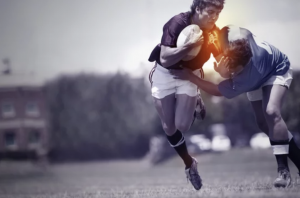Prevention and Management of Sporting Injuries:
Exercise physiologists play a multifaceted role in both the management and prevention of sporting injuries, utilising their expert understanding of human anatomy, biomechanics and exercise science to conduct the following approaches:
- Assessment and Analysis: Exercise physiologists conduct comprehensive assessments, analysing athletes’ biomechanics, movement patterns and physical capabilities to identify muscular strengths, weaknesses, biomechanical imbalances and movement patterns that could predispose athletes to injury. They can pinpoint areas needing improvement or support.
- Tailored Rehabilitation Programs: Exercise physiologists specialise in designing personalised rehabilitation programs based on their thorough assessments. These programs include evidence based exercises and interventions aimed at restoring strength, flexibility, coordination and endurance specific to the athlete’s injury and sport requirements.
- Progressive Rehabilitation: Exercise physiologists oversee the gradual progression of tailored rehabilitation protocols. They ensure athletes rebuild their physical capacity safely and effectively to optimise their return to peak performance and maximise their longevity and performance in their chosen sports. This involves monitoring recovery milestones, adjusting exercises as required and providing guidance on proper technique and intensity.
- Education on Injury Prevention: Exercise physiologists educate athletes on injury prevention strategies. They teach proper warm-up techniques, stretching routines and the importance of conditioning specific to the demands of their sport.
- Biomechanical Correction and Technique Improvement: Not only do exercise physiologists create programs to aid in the rehabilitation of existing injuries, they also identify and address biomechanical inefficiencies and faulty movement patterns that could contribute to future injuries. Through targeted exercises and corrective techniques, exercise physiologists help athletes to proactively strengthen identified vulnerable areas and improve their posture, alignment and movement mechanics to prevent and minimise future injury occurrences.
- Self-Management and Monitoring: Empowering athletes to take charge of their own journey towards sporting performance enhancement, injury rehabilitation and injury prevention is a key aspect of an exercise physiologist’s role. Exercise physiologists provide athletes with appropriate individualised strategies and tools for longer term self management, including strength and conditioning and recovery techniques to maximise their longevity and performance in their chosen sports. They educate athletes and emphasise the importance of listening to their bodies and recognising and addressing early injury warning signs.
- Collaboration and Referral: Exercise physiologists collaborate closely with other healthcare professionals, such as physiotherapists, general practitioners and sports coaches, to ensure comprehensive care. If necessary, exercise physiologists refer athletes to specialists for further evaluation or treatment beyond their scope.
In summary, exercise physiologists serve as pivotal professionals in managing and preventing sporting injuries by employing a holistic approach that integrates personalised rehabilitation, education and self-management strategies. Their expertise not only aids in injury recovery but also equips athletes with the knowledge and tools to enhance their overall performance, prevent injuries and promote long-term health in their chosen sport.
If you would like to book an appointment with our Exercise Physiologists to manage your sporting injury, please call us on 07 3888 6699 or alternatively you can book online at www.moretonallbodycare.com.au

